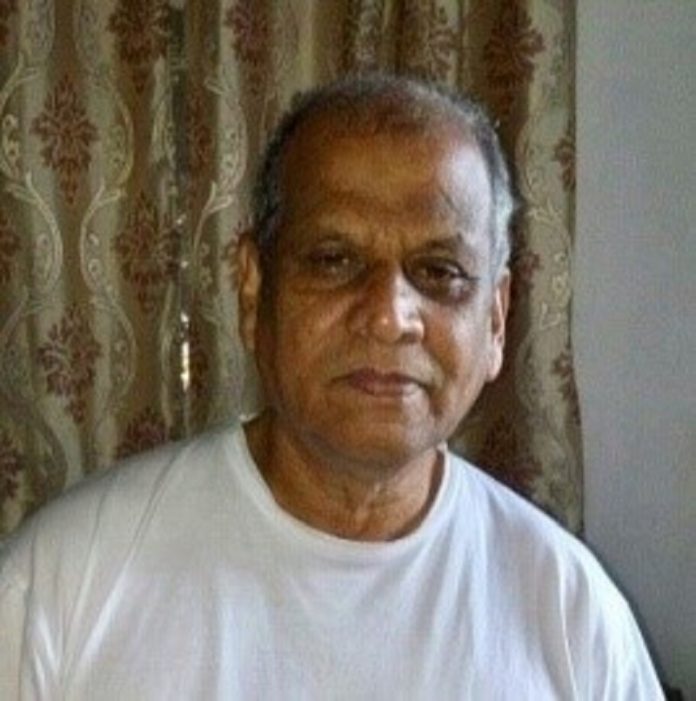In the context of Arrival of Indentured Labourers Day
According to the Times of India about 50 million people speak Bhojpuri in India. Besides India, it is also spoken in Mauritius, Nepal, Fuji , Guyana, Uganda, Trinidad Tobago and some other countries where indentured labourers were brought to work in the sugarcane field. It is highly important to throw some light on the evolution of this language in Mauritius since our fore fathers came here.
Kreol and Bhopuri languages were brought to Mauritius by the Afro and Indo Mauritian people. Language being the main vehicle of culture has helped the Bhojpuri speaking people to demonstrate their cultural practices in a big way. But it is sad to note that Bhojpuri is being receded and has remained a mean of communication for a relegated group of people.
A decline in spoken Bhojpuri is felt in our days due to the growing popularity of kreol language. The reason behind it may be attributed to the fact that kreol being derived from French language enjoys a higher status in our society. The environment created during the colonial era where the means of communication was mainly in French or kreol might be the main cause of making these two languages popular. The Indo Mauritians living in the rural areas were making strenuous effort to speak good kreol in order to enjoy the so called higher status in society. It was a time when speaking Bhopuri in cities was considered to belittle oneself. But one should always keep in mind that cutting from the past may lead you to nowhere. Likewise, Bhojpuri is a treasure for those who were born with this language. The indelible memories of the past, the social, cultural and family values, the unity among family members and neighbours and the commonalities existing among all the Indo Mauritian people resulted partly from Bhojpuri language.
Bhojpuri language in Mauritius cut across the time to reach our generation. Even today meeting and greeting with childhood friends is done in this language imperiously. Today’s situation is not the same as far as communication in this language is concerned. People of the new generation no longer communicate in Bhojpuri with their kids. The fact that the elders still speak Bhojpuri at home makes their kids exposed to this language. But outside home the influence of other languages get an edge upon Bhojpuri.
It is an undeniable fact that a language without its literature wanes and dies. On the other hand Bhojpuri has to face the growing influence of Oriental language taught in our schools. Furthermore at speaking level we have already created a ‘Bhojpuri à la Mauricienne’ which according to me is a true legacy of our ancestors.
Some French words have been so beautifully fitted in this language that it becomes difficult to part from them. Words like cuiller, fourchette, la table, chaise, matelas samedi, dimanche, lundi among others. The adding of a suffix in those words, such as la tabwa, lotowa, chaisewa calesonwa, chemisewa make them part and parcel of this language.
It is a common fact that the actual Bhojpuri is spoken by all the Indo Mauritian people. Therefore the real solution for the survival of this language resides in the promotion of spoken communication, through drama, media, slam, poetry, storytelling etc in Mauritian Bhojpuri. As far as the script is concerned the individual can make his own choice.
Places where Bhojpuri is spoken today are at home by the elders, some programmes are presented on TV, samachar will be broadcast on TV as well from November 2021. Some professionals still converse in Bhojpuri among themselves. During the month of Ramadan a Muslim organization uses to deliver talks on Islam on radio.
Bhojpuri songs are gathering momentum among the youth to some extent. The ‘ Geet Gawaye’ , a song interpreted during marriage ceremony is recognized by UNESCO as ‘ intangible patrimoine culturel ‘ . The Bhojpuri channel on our local TV gives us an opportunity to appreciate the language spoken by our ancestors. It is sad to note that the new generation avoids speaking this language. They need encouragement from elders that communicating in our ancestral language is a pride but not a shame.
When a language dies a whole gamut of socio cultural practices, habits and usage vanishes away. The arrival of Indentured Labourers Day on 2nd November is an opportunity for all the participants to give Bhojpuri its “lettres de noblesse” by officiating the ceremony in this language so that a real air of the past can be felt. The saying goes thus; people who never look backward to ancestors can never look forward to posterity.
Cassam Tupsy
NOTE : Les points de vue exprimés dans cette rubrique ne reflètent pas nécessairement ceux de la rédaction et n’engagent que les auteurs eux-mêmes.



![[Khutbah – La réflexion du Vendredi] Gaza : Le piège de l’oubli ou la stratégie de la diversion](https://sundaytimesmauritius.com/wp-content/uploads/2025/06/gaza-netzarim-corridor-humanitaire-218x150.jpg)



![[Yoga] A shared legacy, a shared future](https://sundaytimesmauritius.com/wp-content/uploads/2025/06/Yoga-Article-HC-218x150.jpg)
![[Khutbah – La Réflexion du Vendredi] Tawakkul, la confiance absolue en Allah (swt)](https://sundaytimesmauritius.com/wp-content/uploads/2025/06/Tawakkul-218x150.jpg)
![[Conseillers du MSM] Cumul de postes sur les boards : Un système lucratif d’enrichissement personnel](https://sundaytimesmauritius.com/wp-content/uploads/2025/06/pic-2-150x150.jpg)
![[National Agency for Drug Control] Sam Lauthan : « C’est tous ensemble qu’on vaincra la mafia »](https://sundaytimesmauritius.com/wp-content/uploads/2025/06/WhatsApp-Image-2023-02-16-at-4.22.48-PM-e1738665704593-150x150.jpeg)
![[OMCA Foundation] Un dîner de gala pour soutenir l’accès aux soins des plus démunis](https://sundaytimesmauritius.com/wp-content/uploads/2025/06/f960dc68-ed3e-4619-ae8e-dd8f374d07c4-150x150.jpg)

![[Conseillers du MSM] Cumul de postes sur les boards : Un système lucratif d’enrichissement personnel](https://sundaytimesmauritius.com/wp-content/uploads/2025/06/pic-2-100x70.jpg)
![[National Agency for Drug Control] Sam Lauthan : « C’est tous ensemble qu’on vaincra la mafia »](https://sundaytimesmauritius.com/wp-content/uploads/2025/06/WhatsApp-Image-2023-02-16-at-4.22.48-PM-e1738665704593-100x70.jpeg)
![[OMCA Foundation] Un dîner de gala pour soutenir l’accès aux soins des plus démunis](https://sundaytimesmauritius.com/wp-content/uploads/2025/06/f960dc68-ed3e-4619-ae8e-dd8f374d07c4-100x70.jpg)